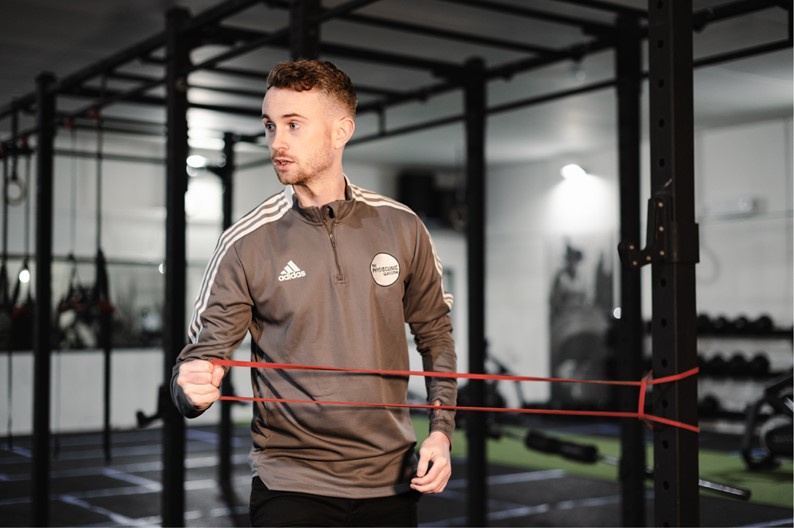Relieving Frozen Shoulder: A Unique Approach to Speedy Recovery
Published: 07 November 2023

Frozen shoulder, also known as adhesive capsulitis, is a condition that affects the shoulder joint, causing pain and stiffness. It occurs when the capsule surrounding the shoulder thickens and tightens, limiting your ability to move your arm freely.
Diagnosing frozen shoulder typically relies on your medical history and a clinical examination. Factors like your age, the onset of symptoms, and the nature of discomfort provide important clues. The examination checks for specific movements that show a loss of both active and passive range of motion along with significant pain at the end of the range.
The need for an x-ray to confirm a frozen shoulder has been a topic of discussion. While it's primarily used to rule out other issues, its necessity has been questioned due to the low likelihood of finding other problems. Nevertheless, in most cases, an x-ray is taken to ensure there are no underlying concerns.
Frozen shoulder treatment options can vary, and there's no one-size-fits-all approach. They range from allowing the condition to resolve naturally, undergoing corticosteroid injections, to more invasive procedures such as manipulation under anesthesia or surgical release of contractures.
Physiotherapy is a common treatment for frozen shoulder. It includes techniques like massage, joint mobilizations, passive stretching, acupuncture, electrotherapy, and exercise. However, recent research suggests that manual therapy and exercise therapy may not be very effective in managing frozen shoulder.
An alternative approach to treating frozen shoulder involves eccentric loading exercises. These exercises can help improve shoulder mobility and reduce pain. Patients perform these exercises by slowly lowering a weight while keeping the arm in external rotation.

This approach has shown potential benefits, including improving joint flexibility and range of motion. While there's limited research on eccentric loading exercises for frozen shoulders, anecdotal evidence suggests that patients can experience noticeable improvements in their shoulder mobility and pain relief.
The rationale behind using strengthening exercises for frozen shoulder is that they can target the muscles around the shoulder joint, which are closely connected to the capsule. By gradually working on these exercises, patients can potentially help their shoulder muscles relax, allowing for improved movement and less pain.
Our seasoned physiotherapists design specialized exercise routines to alleviate discomfort, enhance joint mobility, and boost strength in the affected area. These exercises are critical for restoring standard function and averting recurrence.
So if you're suffering with shoulder pain, what are you waiting for? Get yourself booked in for an assessment and we'll get you on pain free in no time at all.
Arran and Robb
The Physio Clinic Glasgow